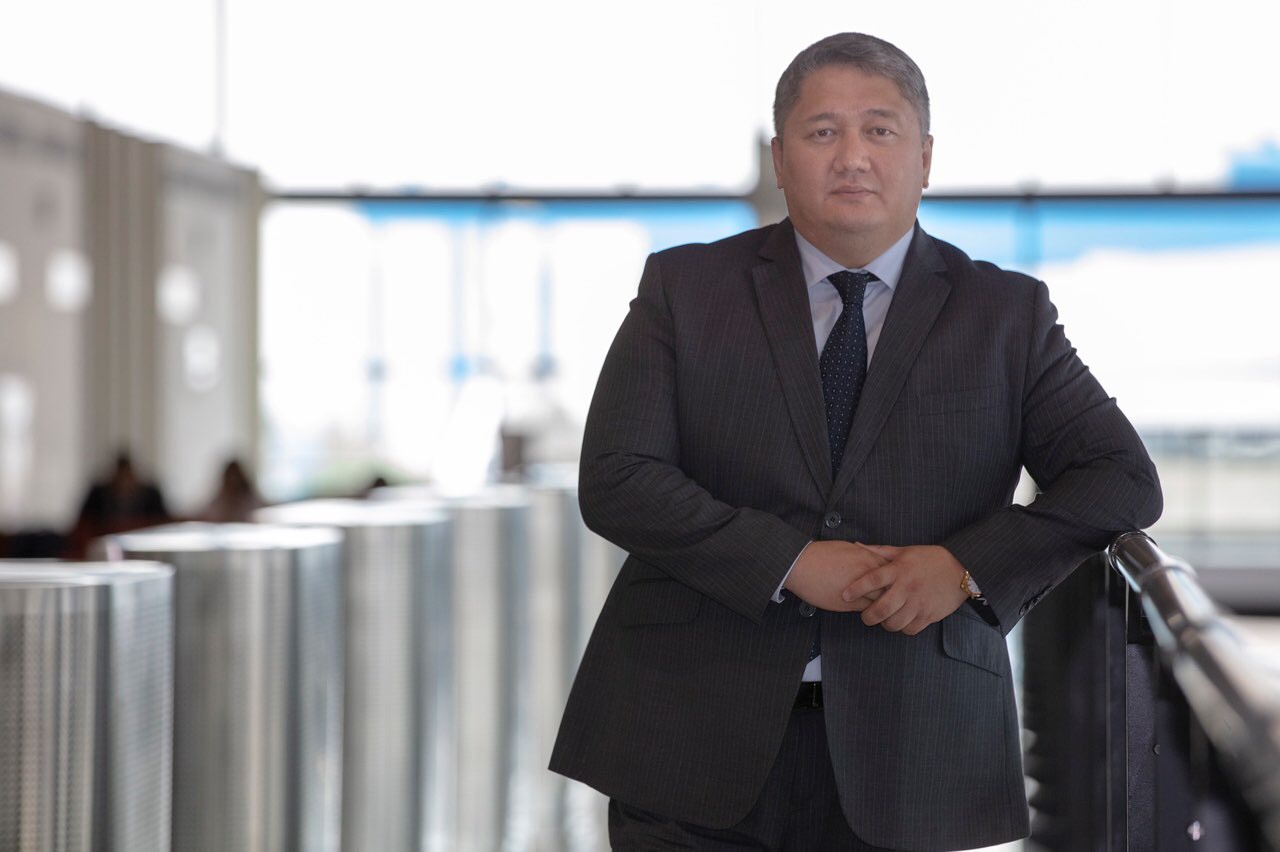Indeed, a technical assistance mission was conducted in Kazakhstan from July to October 2015 in the frame of the ICAO EUR/NAT Technical Assistance project 15/601. This project was in addition to the on-going ICAO Technical Cooperation Bureau (TCB) cooperation project which took place in Kazakhstan. The purpose of both ICAO technical assistance and cooperation projects was to address two significant safety concerns that were identified during the 2009 Universal Safety Oversight Audit Programme Continuous Monitoring Approach (USOAP CMA) audit, focusing mainly on the airworthiness (AIR) and flight operations (OPS) domains, and in particular, ensuring that certificates issued by the Kazakhstan Civil Aviation Authorities were in compliance with national regulations and ICAO provisions.

 Talgat Lastaev has worked for the transport sector, since the beginning of his career. He has a Master’s Degree in political science from the Sanford School of Public Policy, University of Duke, after graduating as a transport engineer from National Aviation University (Kiev, Ukraine). From 2009 to 2017 Mr. Lastaev was a Deputy Chairman of the Civil Aviation Committee of the Ministry for Investments and Development of the Republic of Kazakhstan and was responsible for International
Talgat Lastaev has worked for the transport sector, since the beginning of his career. He has a Master’s Degree in political science from the Sanford School of Public Policy, University of Duke, after graduating as a transport engineer from National Aviation University (Kiev, Ukraine). From 2009 to 2017 Mr. Lastaev was a Deputy Chairman of the Civil Aviation Committee of the Ministry for Investments and Development of the Republic of Kazakhstan and was responsible for InternationalRelations, Public Policy, Finance and Accounting, HR, Legal aspects and Economical Analysis areas. Since 2017 he is the Chairman of the Civil Aviation Committee of the Ministry for Investments and Development of the Republic of Kazakhstan.
Under the ICAO EUR/NAT Technical Assistance Project 15/601, two instructors in flight operations and airworthiness fields provided on-the-job training to Kazakhstan Civil Aviation Authorities’ inspectors on Air Operators Certification. Overall, thirteen Air Operators were inspected and their relevant staff trained together with Kazakhstan Civil Aviation Authorities’ inspectors.
As a result of these projects, Kazakhstan received two ICAO Coordinated Validation Missions (ICVM) in 2014 and 2016 and thus successfully resolved the Significant Safety Concerns. The last ICVM, conducted from 29 March to 4 April 2016, showed an improvement of the effective implementation of ICAO Standards and Recommended Practices from 64% to 74%.
After that, in September 2016, a technical assessment of aviation safety in Kazakhstan was conducted by the European Commission with positive results.
Systematic measures were undertaken by the Kazakhstan Civil Aviation Authorities to strengthen the level of aviation safety in the country and were presented to the Air Safety Committee (ASC) to the European Commission (EC) on 8 December 2016. Following the EC Air Safety Committee recommendations, the Kazakhstan air carriers were removed from the European Commission air safety list.
Moreover, the ICAO EUR/NAT Office provided technical assistance to Kazakhstan under the EUR/NAT AVSEC-KAZ 17005 project during preparation for an ICAO aviation security audit. To that end, a technical assistance mission was carried out by the ICAO EUR/NAT Regional Aviation Security Officer, Ms. Cornelia Ludorf, from 23 to 27 October 2017.
During this mission, information as well as explanations were provided on the protocol questions of the Universal Security Audit Programme Continuous Monitoring Approach (USAP CMA) regarding quality control functions, security of aircraft on the ground and training of aviation security personnel.
Under the same project, EUR/NAT AVSEC-KAZ 17005, the Kazakhstan Civil Aviation Authorities received recommendations for the further development of a risk assessment methodology in the field of aviation security, improvement of the quality control and implementation of ICAO SARPs in the organization of airport and aircraft security systems.
After this technical support, Kazakhstan successfully underwent the ICAO aviation security audit in November last year and demonstrated outstanding results (effective implementation of 83%) in implementing ICAO Aviation Security Standards and Recommended Practices in the aviation security sector.
